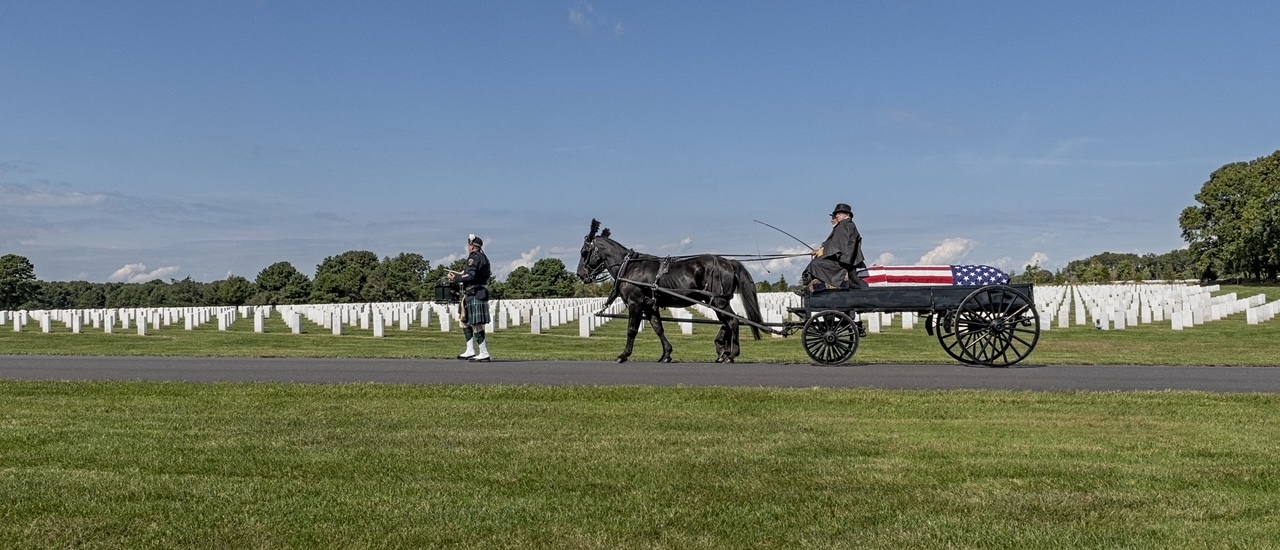
 press-releases
press-releases 

In our newspapers last week, we wrote about the burial in Calverton National Cemetery of a soldier, Sgt. Bernard Sweeney, whose remains were first found near where he went missing in Germany in December 1944.
The burial – with full military honors, including a horse-drawn caisson that held his coffin — was a triumph in so many ways. It was also, as funeral director Ken Rothwell told us, a very bright, shining moment that highlighted the goodness in people and their respect for an Army sergeant who died at 22 fighting the Germans, and who was not positively identified until 2019.
“It was the most moving ceremony I have ever been a part of, and I feel blessed to have been there,” said Mr. Rothwell, whose funeral home handled the arrangements. “In every way, it renewed my faith in the American spirit.”
We could not agree more, especially in the times we are living through, of nastiness fully on display in the swamps of social media; of wars in Ukraine and the Middle East that have claimed the lives of thousands of children; of partisan ugliness in our national politics.
The burial last month of Sgt. Sweeney in the national cemetery showcased a little-known group within the U.S. Department of Defense called the POW/MIA Accounting Agency. This organization’s sole purpose is to find, identify and bring home the remains of American soldiers who lost their lives on foreign battlefields.
The group’s mission is straightforward: to “provide the fullest possible accounting for our missing personnel from past conflicts to their families and the nation,” according to its website.
Certainly, the numbers of those “missing personnel” are daunting: “As of the latest update on May 22, 2023, more than 81,000 Americans remain missing from World War II, the Korean War, the Vietnam War, the Cold War and the Gulf Wars/other conflicts,” the website states.
Until 2019, Sgt. Sweeney was one of the unidentified from World War II. Remains of American soldiers were found near the area where Sgt. Sweeney went missing at war’s end, in 1945. But they could not be identified, as his dog tags and a wallet were found, but not on his body. The unidentified remains were buried at an American cemetery in Belgium — buried, yes, but not forgotten.
In 2019, determined investigators brought the remains to a forensic laboratory in Nebraska. There, after a meticulous process, a positive identification was made. These remains were those of Sgt. Sweeney.
And this is where his story reminds us of the phrase used by President Abraham Lincoln in his First Inaugural Address about the “better angels of our nature.” The plane carrying Sgt. Sweeney’s coffin landed at JFK, where a large crowd of tarmac workers and hundreds of others in a nearby terminal stood in silence. Many saluted as the coffin was taken off the plane.
All the way east, roads and overpasses were crowded with onlookers. Hundreds of police officers from many different departments stood at guard. On the day of the funeral, Blackhawk and Suffolk County helicopters flew overhead. Hundreds came to the cemetery to watch the solemn, horse-drawn procession take the coffin to its final resting place.
Those who participated in the procession said it was unlike anything they had ever seen. Many realized that they watching the burial not of an older World War II veteran, but that of a battlefield death from 1944.
The overarching story of one soldier’s burial is that his life and his sacrifice were not forgotten – even after 78 years. Sgt. Sweeney had no living family, so no loved ones were in attendance that day in the national cemetery. But hundreds of others who wanted to honor him were. And that, as Mr. Rothwell said, speaks volumes about the American spirit.
24World Media does not take any responsibility of the information you see on this page. The content this page contains is from independent third-party content provider. If you have any concerns regarding the content, please free to write us here: contact@24worldmedia.com